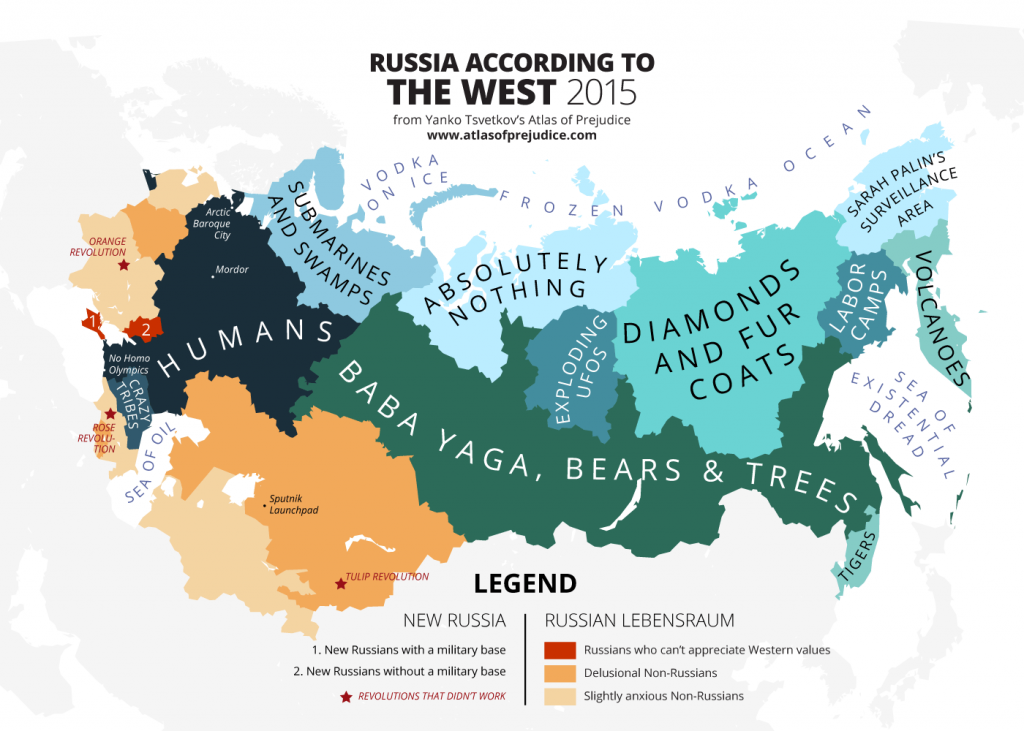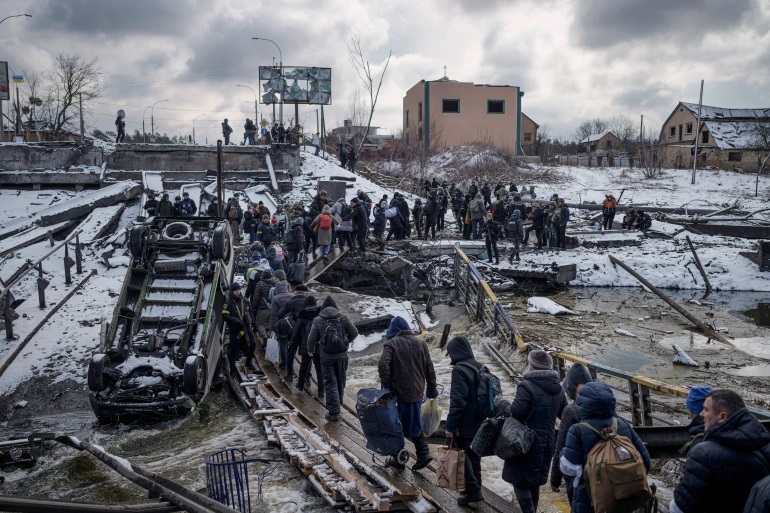
As far as anyone can make out, the situation in Ukraine is nothing if not chaotic. Russian forces are said to be advancing on all fronts. Ukrainian forces claim success after success in slowing down the aggressors or even halting them. Now cities are said to have been cut off, now it appears that, in reality, they are not. Cities are occupied, or else they are not and the two sides keep fighting over them. Convoys seem to be get stuck for days on end, but no one knows why. The Russians are running out of supplies. The Russians so far have only committed about three quarters of their forces. The Russian air force is said to be either held back or ineffective, yet President Zelensky keeps begging the West to impose a no fly zone.
Both sides accuse the other of committing war crimes and provide casualty figures; but neither is at all complete or reliable and there is good reason to believe that many are neither. A maternity hospital is said to have been hit, but whether it was done deliberately or as part of what is euphemistically known as “collateral damage” is obscure. The Western sanctions on Russia are working, or else they are little more than a nuisance that can be taken care of with Chinese help. The Russians are running out of young soldiers (hard to believe, since Russia’s birthrate, while below the replacement figure, is actually higher than that of Ukraine). Putin is winning on all fronts. Putin knows he has bitten off more than he can swallow and is desperately looking for a way out. Putin is ill. Putin is mad. Putin is about to be deposed, though no one knows by whom.
Millions of messages are being sent, intercepted, recorded, decrypted, stored, and analyzed by every possible means from artificial intelligence down. Some are even being falsified. To make things worse still, joining the Niagara of words is a tsunami of images. Attempting to prove their claims, both sides are publishing countless photographs, clips, videos, or whatever they are called. And that does not even include the millions of images sent out by the media on their own initiative. However, most of the time it is impossible to say who took them, when, where, in what context, and for what purpose. To say nothing of the fact that, since the uniforms worn by both sides and much of the materiel they use are broadly similar, it is often impossible to say what is what. One gets to see a shot up vehicle; but who destroyed it impossible to say. One sees wrecked building; but who wrecked it and why is impossible to say. A corpse is shown lying on the pavement; but whose corpse it is, and who killed him, is anything but clear. Briefly, it is not true, as Hitler’s propaganda minister Joseph Goebbels used to say, that bilder luegen nicht. Indeed that itself is perhaps the greatest lie of all.
Except for the sheer amount of information being passed around, there is nothing new or exceptional about all this. Sun Tzu, the ancient Chinese soldier-scholar who probably wrote his Art of War around 500 BCE, says that all warfare is based on deceit and that, of all the ways to defeat an enemy, tricking him is the swiftest and the best (also in the sense of being the least bloody). Carl von Clausewitz, the Prussian general and military theorist who wrote vom Kriege during the 1830s, says that, in war, almost all information (Nachrichten) is contradictory, false, or both. Napoleon, who though neither a theoretician nor a writer was one of the greatest commanders who ever lived, adds that making sense of the confusion is a task not unworthy of geniuses such as Isaac Newton and Leonhard Euler. He himself, incidentally, was a master of deceit—a talent he displayed not just on campaign, as by “stealing a march” on his enemies, but while playing cards as well.
For all the vast technological apparatus it uses, modern war has not been exempt from these problems. To the contrary, in some ways it has made them worse than ever. One factor responsible for this is the sheer amount of information in the hands of, or being generated by, decision makers, soldiers, intelligence services, the media, and individuals on all sides. Let me provide just one example of what this may mean. Back in 1991 headquarters US Marine Corps, preparing to invade Kuwait, received a million and a half satellite-images of the terrain in front of it. This, on top of other kinds of information too numerous to detail here. So enormous was the flood that the images were almost entirely useless—the manpower, the expertise and the time needed to make them useful where simply not available. Since more was being added every hour, processing all of them would have lasted literally forever. The development of artificial intelligence may have alleviated some of these problems. But certainly not all.
A second problem originates in the illusion that we are in full command of our faculties, meaning that our senses provide us with a realistic idea of the world around us. In fact, however, this is by no means always the case. Our minds are colored by fear, elation, hope, despair, disappointment, and a thousand other emotions. Coming on top of this, often what we see depends, not on incoming information but on what we are; as shaped by education, training, prejudice, and so on. No two people, no two organizations, are the same or see the world in the same way. Which means that, even if all the relevant information is available, the task of entering into the enemy’s mind and guessing his intentions is very difficult, not seldom impossible.
Third, in war all these problems are exacerbated by what Clausewitz calls its Strapazen. War is the most strenuous activity any human can engage in by far. To those who have not gone through it the mental and physical stress are simply unimaginable. Partly because of the ever present danger to limb and life, one’s own and those of others; and partly, at the upper levels, because the fate of countries and populations may very well depend on it. Such is the strain that it often causes even the very bravest and most stable to behave somewhat strangely. If not all the time, then certainly some of it. Under such conditions no wonder (as Napoleon said) that false reports proliferate. Some people see entire armies where, in fact, there are none; others don’t see armies even when those armies are right in front of their noses.
A final point that, as far as I am aware, analysts have raised rarely if at all. It goes without saying that, ceteris paribus, the chaos of war affects both the conqueror and the conquered. However, as a rule creating order out of chaos—the conqueror’s task—is a lot harder than doing the opposite; think, for example, of building a new wall brick by brick as opposed to taking up a sledge hammer and bringing it down. Without imposing order on a recalcitrant country, the Russians cannot win. As a result, this factor will probably work in favor of the defender. The Israelis in Lebanon, the Soviets in Afghanistan and the Americans in both Afghanistan and Iraq all tried their hand at this game. Ultimately, to no avail.
Ukraine is a large country with long, hard to seal, borders as well as tens of millions of able and highly motivated inhabitants. Chances are that the same will happen in this case.

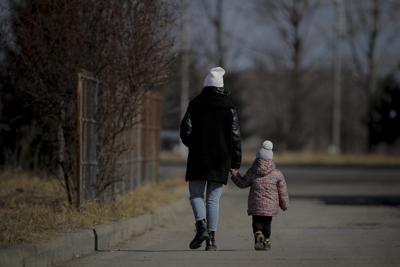
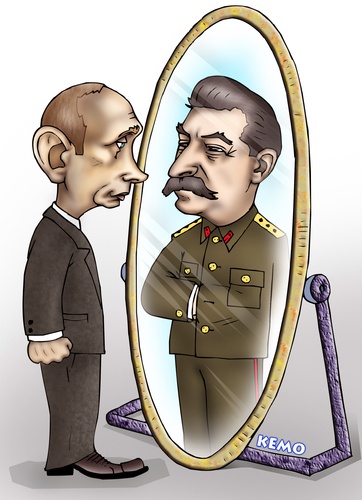 The war in Ukraine goes on and on. Though analysts are as numerous as flies on a heap of you know what, the truth is that one knows how it is going to end. Such being the case, I want to put my latest thoughts on record.
The war in Ukraine goes on and on. Though analysts are as numerous as flies on a heap of you know what, the truth is that one knows how it is going to end. Such being the case, I want to put my latest thoughts on record.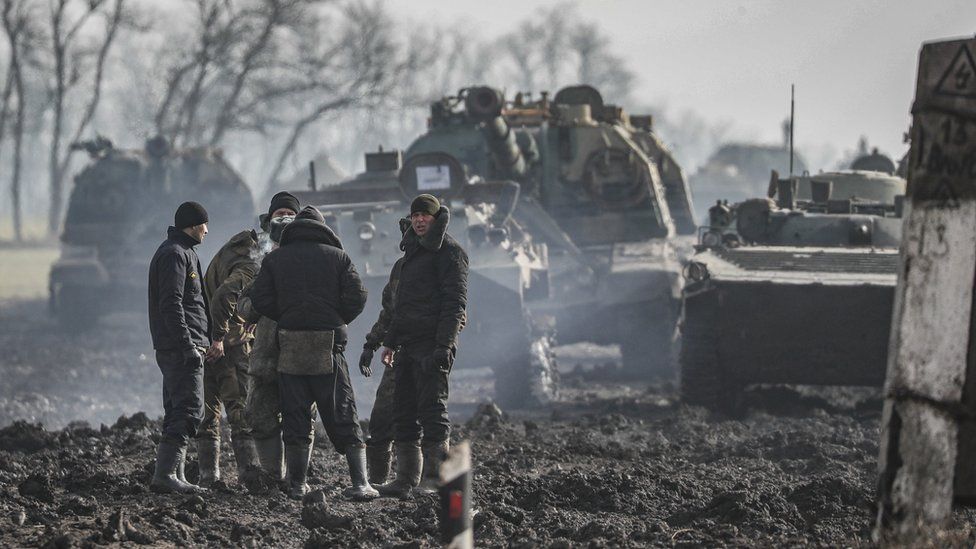


 I have already devoted a post (“To Do and Not to Do,” 24 June 2021) to the Soviet poet Anna Akhmatova. Since then she has continued to haunt me, driving me to learn as much as I could about her without, unfortunately, being able to read her work in the original.
I have already devoted a post (“To Do and Not to Do,” 24 June 2021) to the Soviet poet Anna Akhmatova. Since then she has continued to haunt me, driving me to learn as much as I could about her without, unfortunately, being able to read her work in the original.
